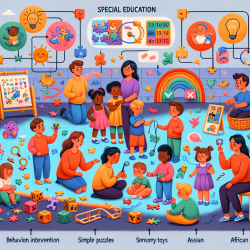Introduction
In recent years, the effects of social isolation and loneliness have gained significant attention, particularly concerning children with neurodevelopmental disabilities (NDD). The scoping review titled Effects of Social Isolation and Loneliness in Children with Neurodevelopmental Disabilities: A Scoping Review sheds light on the profound impact these factors can have on the mental health, behavior, and development of affected children.
Key Findings
The review highlights that children with NDD experience higher levels of loneliness compared to their typically developing peers. This loneliness is associated with various negative outcomes, including mental health issues such as depression and anxiety, as well as challenges in behavioral and socio-emotional development. The review underscores the importance of understanding these associations to mitigate long-term impacts.
Implications for Practitioners
For practitioners working with children with NDD, it is crucial to recognize the signs of loneliness and social isolation. Interventions should be designed to foster social inclusion and participation, which can significantly improve mental health and developmental outcomes. Practitioners should consider the following strategies:
- Encouraging peer interactions through structured group activities.
- Implementing social skills training programs tailored to the needs of children with NDD.
- Collaborating with families to create supportive home environments that promote social engagement.
Research Gaps and Future Directions
The review identifies several gaps in current research, particularly the need for longitudinal studies to better understand the long-term effects of loneliness and social isolation. Future research should also explore the impact of these factors on physical health and academic performance in children with NDD.
Moreover, there is a need for studies that focus on a broader range of neurodevelopmental disorders, beyond autism spectrum disorder (ASD) and attention-deficit/hyperactivity disorder (ADHD), to develop comprehensive intervention strategies.
Conclusion
The findings from this scoping review emphasize the critical role of social inclusion in the well-being of children with NDD. By addressing loneliness and social isolation, practitioners can contribute to better mental health and developmental outcomes for these children. Continued research and targeted interventions are essential to support this vulnerable population effectively.
To read the original research paper, please follow this link: Effects of Social Isolation and Loneliness in Children with Neurodevelopmental Disabilities: A Scoping Review.










